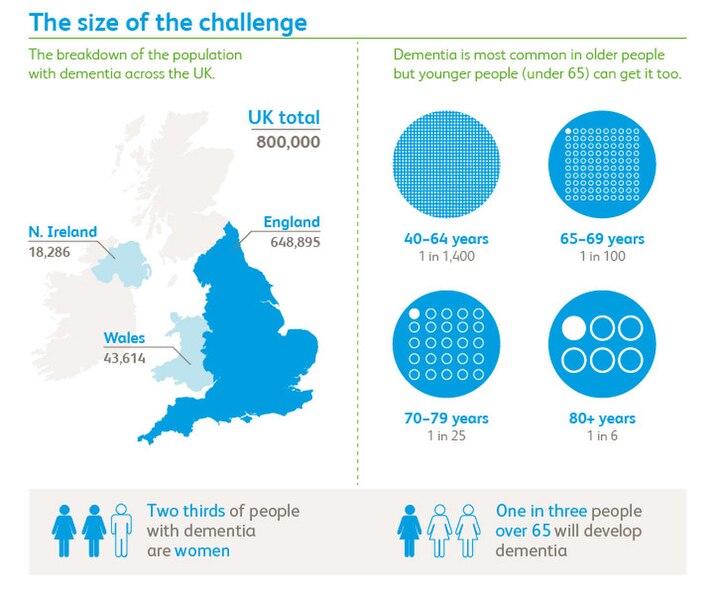
Within the past few weeks, the University of Exeter, in partnership with other Universities, has announced groundbreaking research conclusions to aid the understanding of Dementia.
In linked papers with Maastricht University, researchers have put forward research demonstrating how DNA methylation, a genetic marker, can help understand how genetics and lifestyle factors influence dementia risk. DNA methylation acts as a tag, attached to DNA, with the ability to control genes. This tag can be altered by genetic or lifestyle factors, many of which are already known to influence the risk of dementia. By assessing how DNA methylation is altered, scientists can understand the extent to which these factors increase the risk of dementia and understand the process by which the disease is brought about.
DNA methylation, a genetic marker, can help understand how genetics and lifestyle factors influence dementia risk
The first of the papers was headed by Professor Katie Lunnon, from the University of Exeter’s Medical School. This paper demonstrated how DNA methylation signatures can mirror some protein biomarker levels in spinal fluid samples, which are used for assessing dementia. The team studied these signatures, in conjunction with 15 different spinal fluid samples, assessing the changes in the methylation status of key genes. Lunnon stated: “We know that a number of genetic and lifestyle factors can increase the risk of developing dementia. Epigenetics is a particular exciting research field because it can mediate the interaction between our genetic makeup, which is fixed at conception, and environmental risks, which we can potentially modify.”
In a second paper, led by Dr Ehsan Pishva at Maastricht University, the team generated risk scores, utilising blood DNA methylation signatures as a proxy for 14 different dementia risk factors. For example, lifestyle risks, such as diet and exercise, and some non-modifiable factors, such as age and heart diseases. Using DNA methylation, they demonstrated that their risk scores could help doctors detect dementia, even at the very early stages. This early prediction is crucial, as anyone affected has more time to change lifestyle factors, and access better treatments. Commenting on their research, Pishva stated: “Our epigenetic risk score can improve the prediction of risk of cognitive impairment in different populations, marking a significant advancement in dementia research.” This approach to assessing dementia risk is “non-invasive” and is “paving the way for future studies to explore more personalised and preventive healthcare strategies in tackling cognitive impairment.”
This work provides further evidence that blood tests are the future of diagnosis in Alzheimer’s disease, instead of individuals needing an invasive test
Dr Richard Oakley, Associate Director of Research and Innovation at Alzheimer’s Society
Dr Richard Oakley, Associate Director of Research and Innovation at Alzheimer’s Society, commented on just how revolutionary, and necessary, this discovery is: “Current diagnostic tests […] are time-consuming, uncomfortable and not available in the UK, and currently only 2% of people with dementia can access the specialised tests needed for an accurate diagnosis. […] This work provides further evidence that blood tests are the future of diagnosis in Alzheimer’s disease, instead of individuals needing an invasive test.”
Furthermore, the University of Exeter has announced the development of a virtual centre, to train the next generation of dementia researchers. This new centre, funded by the Alzheimer’s Society, will specialise in training academics working on Lewy Body dementia. This development is ground-breaking, as Professor Allan argues: “Lew Body dementias are an important cause of dementia which are often overlooked and less researched than other dementias.” At least four students a year will have access to the centre, uniting researchers, and aiming to improve the lives those suffering with Lewy Body.


